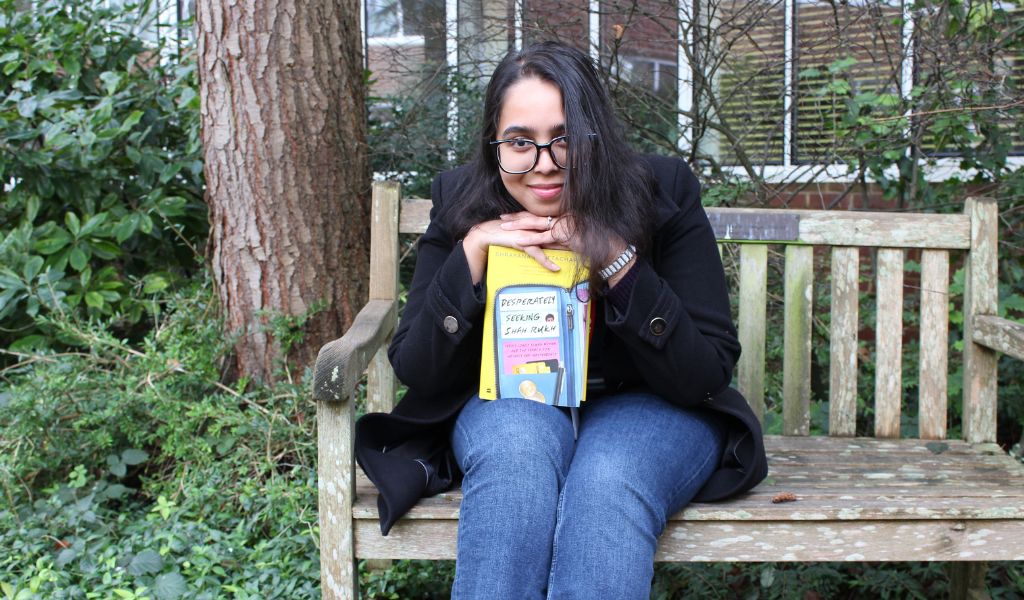Imagine a group of 26 students from 17 different countries coming together to study MA Gender and Development (GAD). What picture comes to mind?
Perhaps a classroom that is a paradox in every sense: chaotic yet compassionate, filled with rage yet brimming with boundless love. A space teeming with stories of courage and heartbreak, and most importantly, one where every voice carried weight. You wouldn’t be far off. My GAD classroom was nothing short of transformative—a place where every day brought new revelations, and my peers were my most profound teachers. It was more than just a space for learning (and unlearning). It became a sanctuary where many of us found an outlet for our anger, while also gaining the tools to articulate our experiences through an academically grounded lens. This blend of intellectual rigor and emotional solidarity made the classroom a microcosm of the broader feminist movement—a space where personal and political met, clashed, and coalesced. This is just a glimpse of my journey into that classroom and how it reshaped me.

My first experiences of gender and development
My entry into gender and development began in my undergraduate years, when I was among the first batch offered the option to study gender history. Yet this introduction to gender as an academic pursuit was met with skepticism—from the outright dismissal during my MA interview at a prestigious Delhi University college where the committee deemed “gender history” unserious, to juniors avoiding the subject as they saw it as too “political” to offer employment prospects. Over time, studying gender history felt like a political statement in itself. When the classroom’s isolation was compounded by the pandemic, I turned to feminist digital media as a form of expression and solidarity. But while this space offered powerful connections, it also exposed me to threats and misogynistic vitriol that remain all too common for women online. These experiences deepened my commitment to gender equality, leading me to pursue a career in the gender and development space.
A lack of funding presents a major barrier
Professionally, this journey gave me meaningful opportunities to engage with feminist ideals, but it also opened my eyes to the harsher realities feminist organisations face in their fight for gender equality. One of the greatest challenges is the persistent issue of funding cuts—an obstacle that looms large in my home country, India. Despite the government’s commitment towards women’s empowerment as a cornerstone for economic growth, feminist organisations in India struggle to access adequate resources. From 2014 to 2021, only 1.5% of corporate social responsibility (CSR) funds were allocated to gender equality and women’s empowerment. In stark contrast, sectors like education receive disproportionately larger shares of CSR funding. This stark funding gap underscores a troubling reality: while gender equality is celebrated in policy discourse, its material support often remains an afterthought.
All these experiences led me to IDS in 2023, driven partly by a quest for answers to the questions that had shaped my past five years and partly by a desire to explore new perspectives. It was here, during a classroom discussion with Dr Tess Lewin and Dr Priya Raghavan that I first encountered the concept of ‘gender backlash,’ which provided a cohesive framework for my fragmented experiences of misogyny, dismissal, and denial. Listening to my classmates’ stories from around the world was both heartening and heartbreaking—it underscored the resilience of the feminist movement while exposing the significant threats it continues to face. Although our experiences of backlash differed, the underlying patterns were strikingly similar, with local anxieties being weaponised to exploit sex and gender against those most vulnerable. At its essence, ‘anti-gender backlash‘ refers to the strong opposition directed at gender justice initiatives and those championing them.
Naming, then countering, the backlash
Throughout this journey, the enduring politics of hope, care, and solidarity have been a source of strength for the feminist movement and have deepened my unwavering belief in it. Naming the opposition is a crucial first step in addressing it. While I learnt to name what I and my peers and countless feminists around the globe experienced as backlash, the next step was learning the tools to counter it.
IDS’s recent report, “Building Solidarities: Gender Justice in a Time of Backlash,” deeply resonates with my classroom learnings, offering a six-principle framework for countering backlash. Among these, the principle of centering mutual care in solidarity-building is particularly meaningful to me. As many activists contend with physical and emotional exhaustion, embedding care and healing practices into movements is not just necessary but transformative. My belief in the politics of solidarity and mutual care has been profoundly influenced by experiencing feminist solidarities during the 2019-20 mass mobilisations in India and by Dr. Deepta Chopra’s research on women’s protest strategies against backlash, which was reflected in those very movements.
ये दाग़ दाग़ उजाला ये शब-गज़ीदा सहर
वो इंतिज़ार था जिस का ये वो सहर तो नहीं
ये वो सहर तो नहीं जिस की आरज़ू ले कर
चले थे यार कि मिल जाएगी कहीं न कहीं
– Faiz Ahmad Faiz
(This tarnished light, this night-stained dawn,
Is not the dawn we had awaited so long.
This is not the dawn of our dreams,
For which we set out, hoping it would gleam somewhere, somehow.)
As Faiz lamented in his time, I too grapple with the sobering knowledge that the dawn I yearn for—both for myself and for the generations to come—remains distant on the horizon. Yet, as I return home, even amidst a global climate fraught with despair and mounting threats to gender equality, I carry with me enduring lessons of hope, care, and solidarity as guiding beacons for action and change. Alongside these, I am fortified by the presence of a fierce and passionate collective of women, unwavering in their commitment to gender equality and transforming the world.

